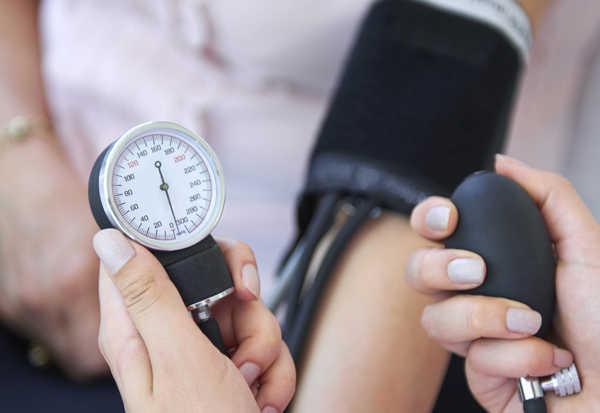Gorgeous wildflowers blanketing the Southern California landscape this spring aren’t the only byproduct of our drought-busting winter storms. The drenching rains also have triggered an explosive bloom of pollen-producing trees, grasses and weeds that plague allergy sufferers.
“Given the rainfall we had this winter, we are expecting a more severe allergy season,” said UCI Health allergist Dr. Donald S. Levy. “Everyone we’re seeing is experiencing an uptick in their allergy symptoms.”
Hay fever symptoms
Spring is the traditional start for the growing season, when newly blossoming trees, weeds and grasses produce billions of infinitesimal pollen spores.
Inhaling many of these spores can overwhelm the immune system, resulting in classic hay fever symptoms:
- Sneezing
- Nasal congestion
- A runny nose
- Itchy, red or watery eyes
Hay fever, also known as seasonal allergic rhinitis, afflicted more than 50 million Americans last year, according to the American College of Asthma, Allergy and Immunology. Some estimates put the cost of treatment, doctor’s visits and lost productivity at more than $14 billion each year.
In temperate Southern California, Levy and his fellow UCI Health specialists in allergy and immunology say hay fever season often stretches from February through December, depending on the weather.
Is it a cold?
Many people confuse an allergic reaction with a cold, which means it’s important to understand the difference.
“A cold typically doesn’t cause persistent sneezing, an itchy nose, congestion or postnasal drip,” said Levy, a professor of allergy and immunology at UC Irvine School of Medicine.
“A cold typically has other symptoms, such as fever, chills, sore throat. And a cold usually doesn’t last much more than a week.”

If you like to jog, do it before dawn or in the evening to avoid pollen.
Avoid pollen contact
If you suspect you are having an allergic reaction, it’s a good idea to avoid the pollens that may be causing your hay fever:
- Keep windows and doors shut, especially on days when the pollen count is high.
- If it’s too hot, use an air conditioner.
- It’s also a good idea to change outdoor routines.
“We know that certain pollen counts rise during the morning hours and peak at midday,” Levy said.
“So if you like to jog in the park, do it before dawn or in the evening. And consider using air conditioning indoors on high pollen days.”

Check your blood pressure before taking any decongestants for your allergy symptoms.
Treating allergy symptoms
Over-the-counter remedies, such as non-sedating antihistamines or nasal steroid sprays, may provide some relief in mild cases, Levy said. But he cautions that people who have liver or kidney problems should check with their doctor first.
Decongestants may reduce stuffiness and congestion, but they also can raise blood pressure and heart rate. People who have high blood pressure and heart issues should check with their doctor before using them, Levy said. Have you checked your blood pressure lately? ›

If your symptoms don't go away with over-the-counter medications, see your doctor.
Know when to seek medical help
If your hay fever symptoms are severe or don’t respond to common treatments, see your doctor, who may prescribe a prescription nasal spray.
A physician may also prescribe a medication called a leukotriene inhibitor to block formation of leukotrienes, chemicals released by the body to attack the allergen, causing allergy symptoms.
People suffering from moderate to severe seasonal allergies may want to consider allergy testing.
“When my patients tell me, ‘I’m not getting better,’ it’s time for allergy testing to identify the exact cause of the allergic reactions,” Levy said. “We also can give advice on how to avoid the offending pollens, along with any contributing indoor allergens, such as animal dander and dust mites.”
Testing options
Blood tests can identify potential allergens in your system with about 50 percent accuracy. But Levy prefers a 15-minute skin test, which allows him to check for reactions to as many as 80 types of allergens with about 97 percent accuracy.
The most common pollen allergies are to grasses in Orange County and much of Southern California, where the growing season is nearly year-round.
Next are trees — especially olive, oak, California juniper and maple — followed by weeds and mold spores.
Desensitizing shots
If medications and avoiding these allergen producers don’t help, injections are an option. “Allergy shots can desensitize the body to the offending substances and may offer a 50 percent to 70 percent reduction in symptoms,” Levy said.
Treatment usually starts with a regimen of injections once or twice a week for several months, with each shot containing a larger dose of the allergen(s) to build a tolerance. Maintenance injections may then be given only once a month, and reassessed for effectiveness after a year.
“Allergy immunotherapy — or allergy shots — are very effective in carefully selected patients,” Levy said. “Studies have found that in 85 percent of patients, the savings from over-the-counter medications and prescriptions, fewer symptoms and complications, regained productivity and improved quality of life far outweigh the costs of the shots.”
Don't let allergies go untreated
Untreated allergic reactions often get worse.
In a phenomenon known as allergen priming, Levy said it can take progressively smaller amounts of exposure to an allergen to trigger a reaction. It also may increase susceptibility to other allergens.
“If you’re having symptoms at the onset of spring,” Levy said, “it’s better to come see us earlier than later in the growing season.”
Related Stories



